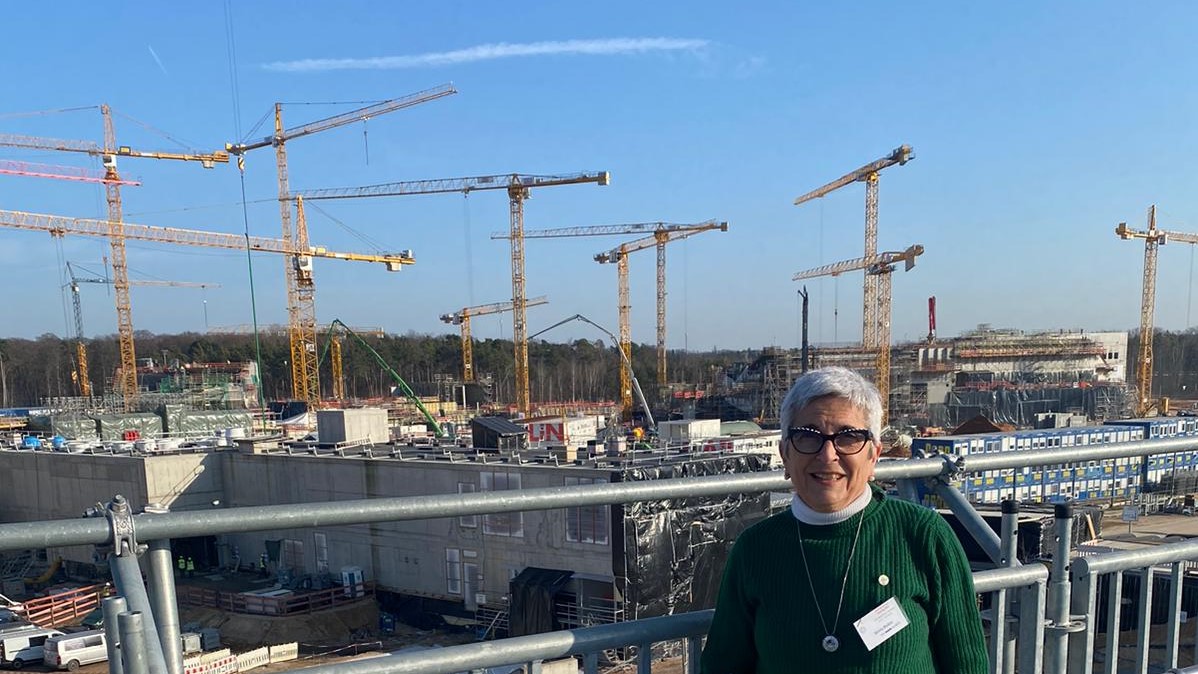The researcher Berta Rubio Barroso, from the Institute of Corpuscular Physics (IFIC, CSIC-Universitat de València), has been elected as president of the NUSTAR Council, of which she was already co-president since 2020. This recognition of her career in the institution consolidates her long work in the field of physics.
NUSTAR is an institution representing the international community of Structure, Astrophysics and Nuclear Reactions. It is a scientific collaboration with 700 members and 170 institutions that forms one of the pillars of FAIR, the future facility for nuclear physics research being built in Darmstadt (Germany).
Berta Rubio Barroso is a CSIC Research Professor at the Institute of Corpuscular Physics (IFIC, CSIC-UV), belonging to the scientific-academic area of the Scientific Park of the University of Valencia (PCUV). He studied Physics at the Complutense University of Madrid, doing his PhD at the Nuclear Research Center KFA in Jülich (Germany) and obtaining his doctorate at the University of Granada in 1985. After returning to Germany with a postdoctoral stay, he joined the Institute of Corpuscular Physics, where he formed together with José Luis Taín the Gamma and Neutron Spectroscopy group.
Rubio has led experiments for the study of exotic nuclei in prestigious laboratories such as ISOLDE (CERN), GSI (Germany), GANIL (France) and RIKEN (Japan). She has published more than 200 scientific papers and has supervised 12 doctoral theses. She has been scientific advisor to several laboratories, including GANIL, ISOLDE (CERN), NSCL (National Superconducting Laboratory, USA) and the Canfranc Underground Laboratory.
Rubio has led experiments for the study of exotic nuclei in prestigious laboratories such as ISOLDE (CERN), GSI (Germany), GANIL (France) and RIKEN (Japan)
FAIR (Facility for Antiproton and Ion Research in Europe) has four 'pillars' or large experimental blocks. One of them is NUSTAR (Nuclear Structure, Astrophysics and Reactions), whose work focuses on the use of beams of radioactive species, separated and identified by the Super Fragment Separator (Super-FRS). This separator is the central instrument of all his experiments.
In these experiments, they study reactions with radioactive beams, properties of exotic nuclei (those with a number of neutrons or protons significantly different from those of naturally occurring nuclei on Earth) and their implications for astrophysical processes, such as supernova explosions or neutron star mergers. Locations where chemical elements heavier than iron are formed.
FAIR will produce the world's most intense beams of radioactive nuclei. FAIR is scheduled to start operations in 2027, so this chairmanship period is very important. During this time, agreements will be signed between the countries to set up the experiments at NUSTAR-FAIR, to install the instruments that are being set up at the consortium member laboratories, and to make decisions on the first measurements to be carried out.
Spanish contribution
In NUSTAR there is an important Spanish contribution. Several experiments have been developed and tested in other nuclear physics facilities, while waiting for FAIR to start operating. Of particular note is DTAS, a detector to measure beta decay, built by the Gamma and Neutron Spectrometry group at IFIC. DTAS is finished, and its commissioning is being carried out at the RIKEN laboratory (Japan) and in FAIR phase 0, last year. This spectrometer, with a higher efficiency than those previously used, has been used to measure beta decays with very low yields. Once FAIR is up and running, it will be possible to measure more exotic nuclei.
In NUSTAR there is an important Spanish contribution. Several experiments have been developed and tested in other nuclear physics facilities, while waiting for FAIR to start operating.
In other media


